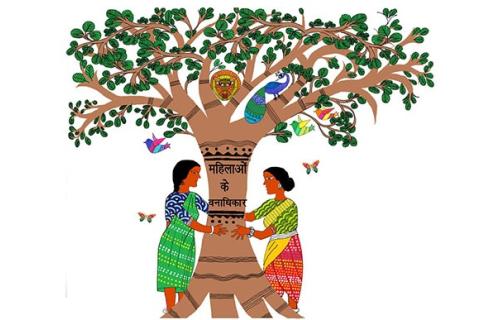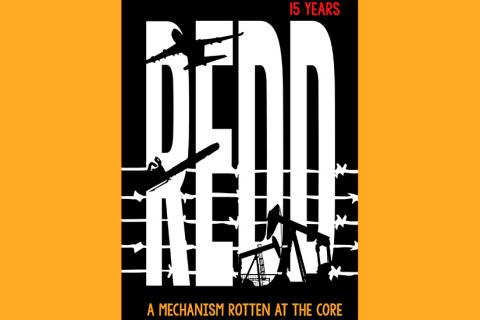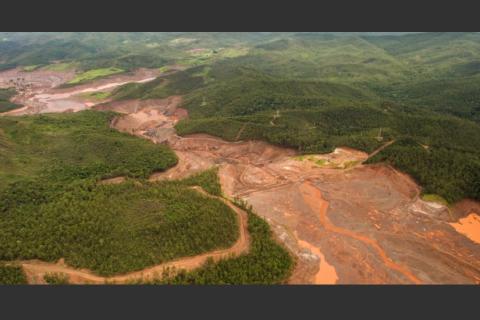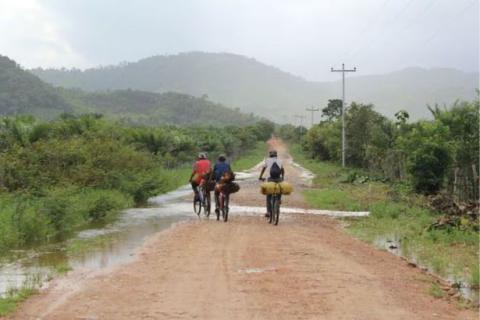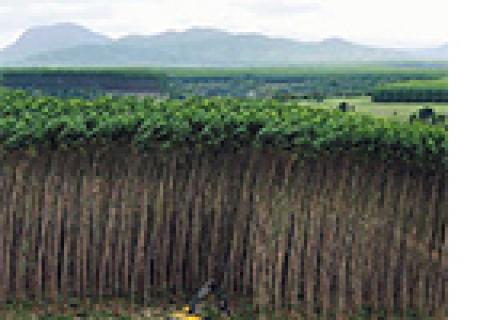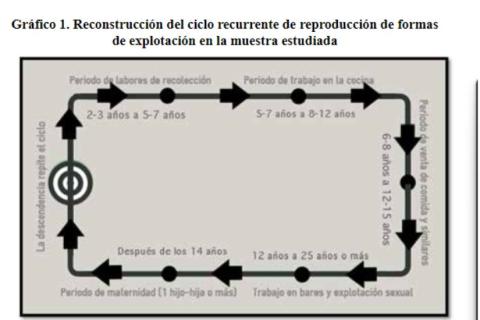After two years of blocking all work on the proposed Baram Dam in Sarawak, Malaysia, the indigenous peoples have scored a major victory: the state government has announced a moratorium on the controversial dam and an evaluation of small-scale energy alternatives. The indigenous peoples of Baram however are still concerned due to the status of their native lands which are already gazetted for construction of the dam, and of the on-going logging activities carried out with valid permits.
Other information
A Press Release by All India Forum of Forest Movements (AIFFM) denounces the Government of India allowing “forest concessions” to private sector companies in what it perceives as state-owned forests. Forty per cent of the “identified” degraded forests could be given away on lease to private companies for raising plantations, violating not one but several statutes such as the Forest Rights Act or the Indian Forest Act.
The Global Coalition Against REDD in alliance with the No REDD in Africa Network (NRAN) and supported by many international organizations launched a Declaration at the Civil Society Alternative Programme to the World Forestry Congress, which was held in Durban, South Africa, in early September.
On August 25, 2015, employees of the Fibria Company in Tres Lagunas, Mato Grosso do Sul, made public the recent layoffs made by the company - one of the largest pulp producers in Brazil. “In the last few weeks alone there were almost 18 layoffs. And the worst is that some workers with occupational diseases were also dismissed.” The dismissals are thought to be a retaliation due to workers’ mobilization surrounding the creation of a new union organisation.
Rivers Coalition in Cambodia (RCC) together with national and international organizations, insist to immediately stop all activities related to the construction of the Don Sahong Dam after the concession agreement was officially approved earlier this September in a unilateral decision by the Government of Laos.
An article in the newspaper "El País" shows the intense violence experienced by the people of the valley of Bajo Aguán, in Honduras, who are struggling to regain land that was captured long ago by Dinant Corporation for its vast palm oil plantations. The conflict has attracted worldwide attention partly because the company had the backing of the International Finance Corporation (IFC), the commercial sector arm of the World Bank which grants loans to private companies.
In September 2015, the UN Organization for Food and Agriculture (FAO) will held the World Forestry Congress in Durban, South Africa, on the “Sustainable Future” of the world’s forests. Policy makers will also attend this meeting, controlled by the timber industry.
An investigation focused on the river port of Pucallpa, Ucayali, in the Peruvian Amazon, reveals that women serving in the bars around the harbor and those dedicated to the work in logging camp kitchens (legal and illegal) have been continuously sexually exploited, and many of them are also victims of sex trafficking.
A report from the Rainforest Foundation UK, shows how attempts of community based forest management in the Congo Basin thus far have not been able to transfer meaningful rights or benefits to local communities. Only around 1% of the total Congo Basin is under the formal control or management of local communities while industrial-scale logging represents by far the biggest land use in the region.
Ancient forests are being lost at an "unprecedented" rate from protected lands in Cambodia, according to a new report from the group Forest Trends. The Cambodian government has in recent years granted what are termed Economic Land Concessions (ELC) to large agri-business companies who want to develop the land. Under the guise of creating a rubber plantation for instance, the trees are cleared and exported.
Most of the Congo Basin’s forests have been divided up into concessions, conservation areas and community use, with most of Central Africa’s forests being under industrial forest concessions. Forest-dependant communities have been totally excluded from decision-making processes.
In 2013, the Central African Republic was plunged into a conflict that has cost over 5,000 lives and displaced more than a million people. When the insurgent group Seleka seized power in a bloody coup d’état, Seleka rebels were dispatched to the country’s rainforests. Here they struck lucrative deals with logging companies that helped bankroll a fierce campaign of violence against the country’s population.
